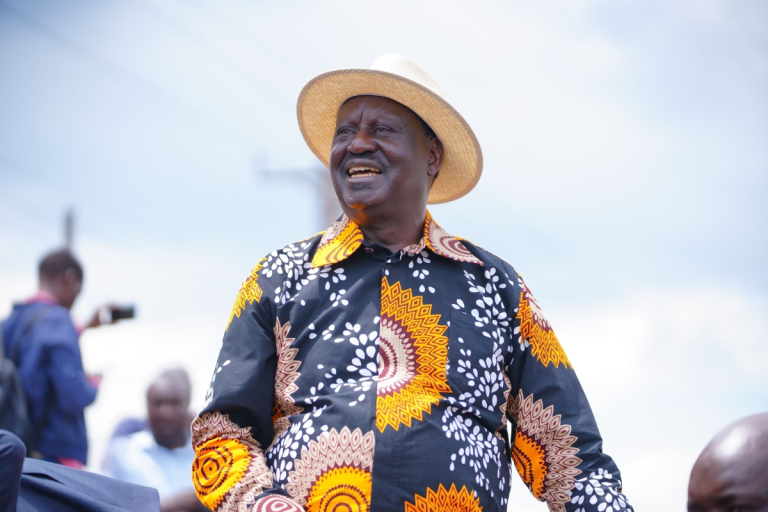Kenya’s long-time opposition leader and former prime minister, Raila Odinga, has died at the age of 80 while undergoing medical treatment in India. Hospital officials at Devamatha Hospital in Kerala confirmed that Odinga suffered a fatal heart attack during his stay. His death marks the end of an era in Kenyan politics, leaving a significant void in the country’s opposition leadership ahead of the 2027 elections.
Death and Immediate Reactions
Odinga collapsed during a morning walk in Kerala, accompanied by family members, security personnel, and medical staff, according to Indian police. He was rushed to a nearby hospital, where he was pronounced dead. Indian media reported that Odinga had been receiving treatment in Kochi, while his office and Kenyan officials confirmed the news.
As word of his death spread, Kenyan President William Ruto visited the Odinga family home in Nairobi’s Karen suburb to offer condolences. Hundreds of supporters gathered outside, mourning the man many called “Baba” — Swahili for “father” — and waving twigs in traditional rites to ward off bad omens.
A Lifetime of Political Struggle
Born in 1945, Raila Odinga was the son of Jaramogi Oginga Odinga, Kenya’s first vice president after independence in 1963. His political journey spanned over five decades, marked by imprisonment, exile, and five presidential bids between 1997 and 2022.
Odinga was first detained in 1982 following a failed coup against President Daniel arap Moi, enduring years of imprisonment and persecution. Upon his release, he entered parliament in 1992 and became a symbol of pro-democracy activism, pushing for reforms that culminated in the legalization of multiparty politics in 1991 and the adoption of a new constitution in 2010.
Reformer and Controversial Figure
Often described as “an enigma in Kenyan politics,” Odinga was both revered and criticized. His followers viewed him as a revolutionary voice for democracy and justice, while opponents accused him of deepening ethnic divisions and political opportunism. Known by the Luo nickname “Agwambo,” meaning “the mysterious one,” he was skilled at political reinvention and coalition-building.
Despite losing all five of his presidential bids, Odinga’s influence never waned. His ability to mobilize millions made him a central figure in shaping Kenya’s political landscape. In March 2025, he entered a power-sharing arrangement with President Ruto, integrating his Azimio la Umoja coalition into the government.
Global Tributes and Legacy
Leaders from across Africa and beyond paid tribute to Odinga. Former Kenyan President Uhuru Kenyatta described him as “a father to the nation” whose efforts for democracy and peace “are etched in the fabric of Kenya.” Tanzanian President Samia Suluhu Hassan hailed him as “a global African and peace-loving statesman,” while Indian Prime Minister Narendra Modi remembered him as “a cherished friend of India.”
Mahmoud Ali Youssouf, chair of the African Union Commission, praised Odinga as “a steadfast champion of democracy, good governance, and people-centered development,” noting that his lifelong advocacy inspired generations of African leaders.
Raila Odinga’s death closes a defining chapter in Kenya’s democratic journey. Revered for his resilience and feared for his political power, he leaves behind a complex but enduring legacy. His vision for a fairer, more inclusive Kenya transformed national politics and continues to shape the continent’s democratic aspirations.


